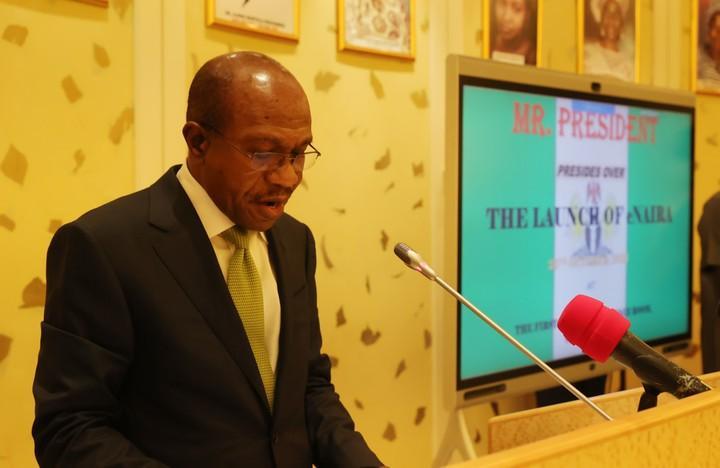- We Won’t Change Forex Policy, Says CBN
The Central Bank of Nigeria on Thursday stated that no amount of criticism and blackmail from “self-centred individuals” would make it change its current flexible foreign exchange rate policy.
The apex bank said this in a statement titled: ‘Nigeria’s current economic situation: Our case’, signed by its Acting Director, Corporate Communications Department, Mr. Isaac Okorafor.
The bank said while it was not opposed to the fact that Nigerians had the right to express their views, majority of such views had become attacks on its policy rather than proffering solutions.
The statement read in part, “The Central Bank of Nigeria has observed with great concern the continued and unwarranted attack on its policies by a group of Nigerians, whose real interests, findings have shown, are anything near altruistic, but rather self-serving and unpatriotic.
“While we respect the rights of every Nigerian or stakeholder to their respective views, we find it curious that certain interests have remained persistent in their move to misinform the larger public, with the intention of discrediting genuine efforts at managing the economy, thereby creating public distrust and panic within the financial system.
“Indeed, self-centred individuals, who have failed to assail our patriotic position, have resorted to the sponsorship of serial propaganda to misinform and mislead the public on the objectives of our policies.
“Intelligence reports at the disposal of the bank reveal the involvement of some unpatriotic elements funding the push to have the CBN and the Federal Government reverse its forex policy, which is aimed at conserving foreign exchange, stimulating agriculture and manufacturing, and also promoting exports.”
The apex bank said the present economic challenges facing Nigeria were worsened by the country’s past practice of frittering away huge earnings made from oil sales over the years.
The statement added, “As we have explained on several occasions, our decisions on forex management are prompted by the challenge posed by the level of depletion of the country’s reserves, arising from issues such as a drastic reduction in oil earnings, speculative attacks and round-tripping.
“It is pertinent to note that pressures on the country’s foreign reserves have persisted due to a huge fall in the monthly foreign earnings, which fell from over $3.2bn sometime in 2013 to below $500m per month sometime in 2016, when the demand for the US dollar, particularly by importers, continued to rise considerably.
“In spite of the challenges and the basic economic fact that countries earn dollars from international trade, we have ensured we meet the genuine demand of importers to pay for eligible imports and other transactions within available resources.”
It explained that in line with its mandate and working with the fiscal authorities, the management of the CBN would continue to ensure monetary and price stability as well as maintain the external reserves to safeguard the international value of the naira.
“While leaving our doors open for genuine partnership with all our stakeholders, we will only take economic decisions that will impact positively on the lives of all Nigerians,” it added.



 Naira4 weeks ago
Naira4 weeks ago


 Naira3 weeks ago
Naira3 weeks ago




 Naira3 weeks ago
Naira3 weeks ago




 Naira4 weeks ago
Naira4 weeks ago




 Naira2 weeks ago
Naira2 weeks ago
 Commodities4 weeks ago
Commodities4 weeks ago


 Sport Business4 weeks ago
Sport Business4 weeks ago


 News3 weeks ago
News3 weeks ago




















